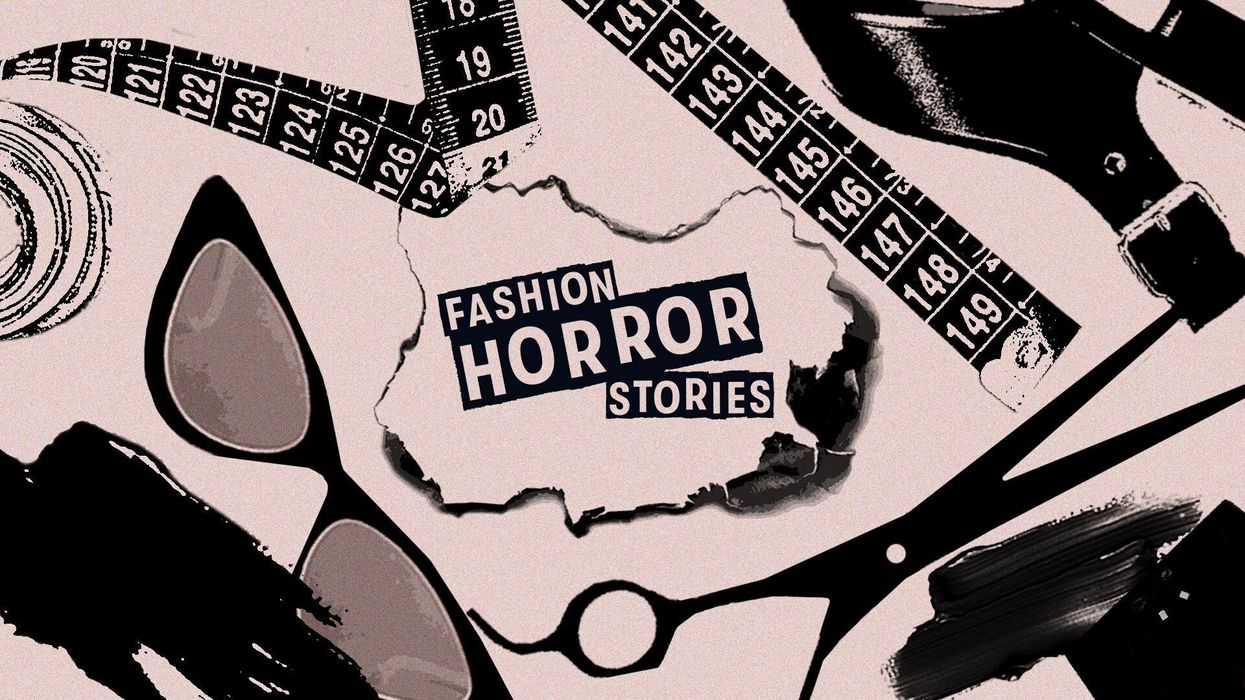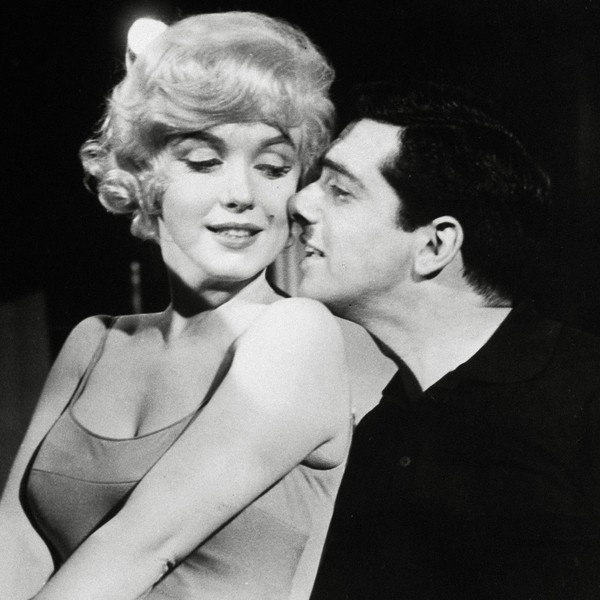Working for a Strung-Out Stylist During Peak Indie Sleaze
Valium, coke, and couture—oh my!

The fashion industry is known for its volatile creatives and unshakable self-seriousness. If you ask anyone who’s worked in fashion or at a magazine if it’s like The Devil Wears Prada, they will likely tell you that’s a G-rated shadow of their lived experience. With our generation’s waning patience with abusive workplaces and megalomaniac bosses, these stories from our collective past are taking on a new light. Often dismissed flippantly as part of “paying our dues,” fashion veterans and current employees alike are re-examining their experiences with newfound clarity. Somehow, even in this relatively progressive era we’ve entered, the fashion industry remains one of the last bastions of unchecked and wildly inappropriate behavior. From former fashion interns to magazine assistants to models, we’re compiling an oral history of fashion workplace experiences in the series "Fashion Horror Stories."
In this latest installment of “Fashion Horror Stories,” we’re hearing from former stylist’s assistant, Devon, who worked in the industry at the peak of the Indie Sleaze era:
How did you get into your first job as a stylist assistant?
“It was around 2012, and I had a background in fashion culture blogging, and nightlife, but I wanted to get more into fashion. I was interning at a clothing brand at the time, and I started peripherally bumping into this stylist who had become a New York and LA socialite. She was a figure in the scene, always around prominent people. She was also the only cool Asian I could look up to at the time. At some point, I just approached her and asked her if I could help as an assistant, so she hired me.”
What were some red flags that you noticed early on?
“At the time, I didn’t understand the need for separation between personal and work relationships—it all started blurring together. You work for such long hours, and the job becomes so consuming that that work ends up feeling like socializing. You have no boundaries or ability to know what’s appropriate. You end up brainwashed into a sense of intimacy and obligation you normally wouldn’t have in the workplace.”
In what ways did your relationship with her blur boundaries?
“I had to pick her up in the morning, which quickly shattered the illusion of glamour. I saw her strung out on pills—downers mostly. She would give me these unwarranted clips of advice that were funny at the time but quite sad when I think about the life that she was living. Some things she taught me were truly valuable, like always buy vintage Saint Laurent because it retains its value. Her other advice, specifically about boys, was always concerning. She said, ‘After a while, it’s no longer about their intellect. It’s all about the flesh and body.’
“It was disappointing because I’d known her in a friendly context before I started working with her, and she was like the older, cooler girl on the playground. When I started working for her, I felt so dehumanized. She made me feel like I wasn’t worthy of anything. I tried not to take it personally, but she was really damaged—bulimic and on pills all the time. It’s interesting, as I get older, I can see her as such a cliché damaged person who got into fashion, which is a lot of people, as you know.”
How old was she?
“At the time, I think she was around 37. It’s pretty young, but that was still a long time of partying, borrowing high-fashion clothes from shoots, and just maintaining—at all costs—this vision that she had for herself.”
What was that vision she had for herself specifically?
“It was the height of indie sleaze. Being the fucked up girl was cool—being hungover and strung out. It sounds like a joke, but it wasn’t. That era was all about being messy and having photos of yourself on Xanax in bed wearing a fucking Chanel dress. That behavior was not only expected but worn with honor.
“At the time, my boss was friends with a lot of prominent people and celebrities, and it was hard for her to keep up with those people. She didn’t come from money, so she borrowed all the clothes she pulled for her clients and spent all her money on cocktails at Soho House. Every morning, I had to pick up and put together this broken person. As much empathy as I felt for her, she was cruel and very entitled. At some point, it just felt like a waste of my time enabling that behavior. I was also being taught to veer into that type of behavior as a way to establish myself, but I’ve seen first-hand that you can’t behave like that without repercussions. I saw the way her insecurities made her feel like she had to abuse the very little power she had towards me. I knew what she was doing and never wanted to act like that.”
What do you think made her such a broken person?
“Insecurity. When you work as a stylist, you’re a dog. You’re physically a laborer carrying these giant racks of clothing and equipment in a space that is supposed to be the height of glamor. It’s exhausting and unforgiving, but you want to keep up a veneer of glossiness. You’re insecure because maybe clothing was always the entrée you had to that world to begin with—something to hide behind—but it’s also so physically and mentally taxing.”
Has the industry changed at all for stylists since you worked with her?
“I know a bunch of prominent stylists now, and they’re more real about it. They’ll say, ‘I’m so exhausted. I’m starving. I haven’t gotten paid yet. Let’s go to this party because they’ll have a meal.’ Before recently, nobody talked about the fact that you’re carrying four racks of clothing, you have a car half-full of clothes, and you’re carrying it all by yourself up three flights of stairs to set up. Not to mention unpacking, repacking, dealing with the background of what sells, and all the behind-the-scenes paperwork. It’s grueling. There were days I would leave at 5:00 a.m. for a shoot and wouldn’t get home until 3:00 a.m.”
When did you know it was time to leave that job? What was the breaking point?
“When the calls became so persistent, and the expectations were so demanding—’I need this here, this there’—I finally picked up the phone and said, ‘Hi, I just got a full-time job, and I start tomorrow.’ I just needed them to leave me alone. The money certainly wasn’t worth it. I was just so physically exhausted and emotionally disrupted that I knew I’d reached my limit of what I could deal with.”
After doing several of these interviews, I’ve found that nearly everyone experienced terrible pay, unholy working hours, and anywhere from hostile work environments to flat-out abuse. What keeps people working there for so long? What makes these jobs worth it to them?
“It’s an addiction to the veil of prestige. As any creator, you either do things for prestige, money, or the chance of a lifetime to work with X, Y, or Z. You need a portfolio, and you have to believe that if you can endure enough, the prestige will get you the pay eventually.”
What happened to your old boss? Did you ever see her again after you quit?
“I have no idea. She completely disappeared. Her social media went silent. Sometimes, my friends and I still bring her up, wondering where she is.”
Maybe she found God.
“I think she found God. Maybe settled down with somebody who could see something beyond what she could. Maybe she’s dead. I don’t know.”
What would you say is the biggest takeaway from your experience with her? How did it mold you in your career?
“I think it gave me the ambition to be above that. You can’t allow your shitty experiences to become trauma you carry on to someone else. Don’t fuck someone else’s life up, taking all your shit out on them. I speak to so many young creatives that experienced similar environments in the past, and we need to make a collective shift so there’s no generational trauma with this bullshit. And, I know it’s such a Gen Z thing, but in terms of self-preservation, if you don’t like it, don’t do it.”
Knowing this was the era of indie sleaze, what role did drugs play at the time?
“Oh god. A big role. When I quit one of my styling assistant jobs, I wanted to go completely bleach blonde, like white blonde. My hair stylist asked, ‘Have you been doing drugs? I can’t get this band out of your hair.’ All my hair was bleached white except for this band, which was still yellow. I said, ‘Well, I’ve been doing cocaine three times a week for the last few years.’ Apparently, the drugs slow down the chemicals.”
I hate it when the body keeps the score. Since we’re wrapping up, do you have any last horror story anecdotes you want to share?
“Well, this was from my time on the editorial side of things after the time you worked at [REDACTED] Magazine. There was a time I had to go to work early to let in a publicist before a shoot, and I had to step over a fucking dead body to open the door.”
What? At [REDACTED]? Like an actual dead body?
“Yeah, I guess someone overdosed in the back parking lot space.”
Classic [REDACTED]. Well, that’s not so much a fashion horror story as just a regular ol’ horror story. Never had a dead body in one of these stories yet.
“There’s a first time for everything.”




